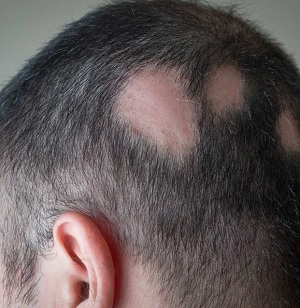Hair loss can have various causes, including genetic factors, hormonal changes, nutritional deficiencies, medical conditions, and certain medications. The treatment for hair loss depends on the underlying cause and can vary from person to person. Here are some common treatment options for hair loss:
- Medications:
Minoxidil: Also known as Rogaine, minoxidil is a topical medication that is available over the counter. It is applied directly to the scalp and can help promote hair growth and slow down hair loss in both men and women.
Finasteride: This prescription medication is available for men and is taken orally. Finasteride helps block the conversion of testosterone to dihydrotestosterone (DHT), a hormone that contributes to hair loss in genetically susceptible individuals.
- Hair Transplantation:
Hair transplantation is a surgical procedure that involves moving hair follicles from one area of the scalp (the donor site) to another area with thinning or no hair (the recipient site). It is commonly used for pattern baldness and can provide long-lasting results.
- Platelet-Rich Plasma (PRP) Therapy:
PRP therapy involves drawing a small amount of blood from the patient, processing it to separate the platelets, and then injecting the platelet-rich plasma into the scalp. Platelets contain growth factors that may help stimulate hair growth and improve hair thickness and density.
- Low-Level Laser Therapy (LLLT):
LLLT uses red light or near-infrared light to stimulate hair growth. It is often delivered through devices such as laser caps or combs and can be used at home. LLLT is thought to enhance circulation in the scalp and promote hair growth.
- Dietary and Lifestyle Changes:
Eating a balanced diet rich in vitamins, minerals, and proteins can support healthy hair growth. Additionally, managing stress, avoiding excessive heat or chemical treatments, and being gentle with your hair can help prevent further hair damage or loss.
- Wigs, Hairpieces, or Hair Styling:
For individuals experiencing significant hair loss, wearing wigs, or hairpieces, or using specific hair styling techniques can provide temporary solutions to improve the appearance of hair.
It’s important to consult with a dermatologist or a healthcare professional who specializes in hair loss to determine the underlying cause of your specific hair loss and to develop a personalized treatment plan. They can evaluate your condition, conduct any necessary tests, and recommend the most appropriate treatment options for you.
Personalized Care for Skin Health
At our clinic, we understand that each individual’s skin is unique and requires personalized care. Whether you’re dealing with acne, wrinkles, hyperpigmentation, or other skin concerns, our experienced dermatologists are here to help. We offer tailored treatment plans that combine effective skincare products and advanced procedures to address your specific skin issues. Let us guide you on your journey to healthier, clearer, and more vibrant skin.

